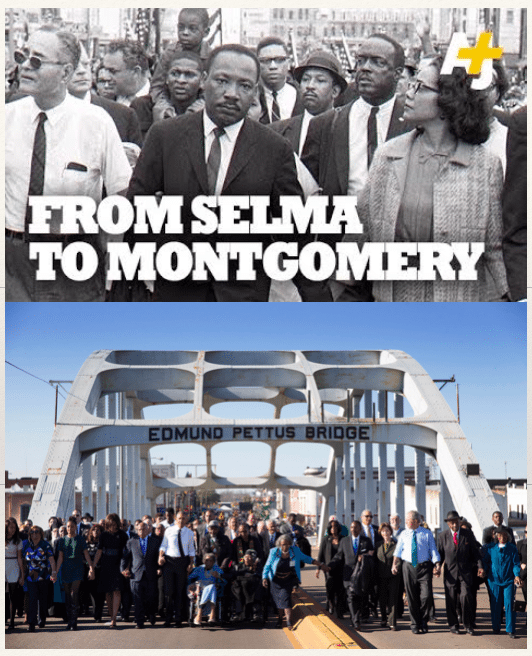
Commemorating Selma’s ‘Bloody Sunday’
March 9, 2015
Top News Today
During that fateful day when 600 demonstrators embarked on a 50-mile march to Montgomery to secure the right to vote for all, peaceful protesters were brutally attacked by police officers with billy clubs and tear gas. Among those in attendance that day was current Georgia congressman John Lewis, who was beaten so badly that he sustained a skull fracture and nearly lost his life. Public outcry from this gut wrenching moment in civil rights history led to President Lyndon B. Johnson’s passage of the landmark Voting Rights Act of 1965.
To commemorate the 50th anniversary of “Bloody Sunday,” the nation’s first African-American president led a bipartisan and multi-ethnic testimonial to those civil rights leaders whose courage helped pave the way for his own election to the White House.
During remarks on the infamous bridge, President Obama rejected the idea that racism has been defeated. “We don’t need the Ferguson report to know that’s not true,” he said. “We just need to open our eyes and our ears and our hearts to know that this nation’s racial history still casts its long shadow upon us. We know the march is not over yet, we know the race is not yet won. We know reaching that blessed destination where we are judged by the content of our character requires admitting as much.”
Mr. Obama also used the occasion to fire back at former New York City Mayor Rudolph Giuliani, who recently questioned his love for America. The president cited the bravery of the marchers who risked everything 50 years ago to stand up for their rights.
“That’s what it means to love America,” Mr. Obama said. “That’s what it means to believe in America. That’s what it means when we say America is exceptional. That’s what America is — not stock photos or airbrushed history or feeble attempts to define some of us as more American as others.”
A crowd of 40,000 mostly African-American people, including First Lady Michelle Obama, first daughters Malia and Sasha Obama, as well as several of the original marchers, all crossed the bridge to mark the solemn occasion. However, the fact the bridge remains to this day a tribute to a white supremacist KKK leader was not overlooked.
The Edmund Pettus Bridge in Selma was named after Edmund Winston Pettus, a Confederate general and U.S. senator who was once the Grand Dragon for the Ku Klux Klan. Also, just beyond the bridge is a billboard tribute to another Confederate general — Klan founder Nathan Bedford Forrest. Now, a group of Selma students are working diligently to change all that.
John Gainey, executive director of Students UNITE (a racially integrated youth group) recently addressed an online petition to Selma Mayor George Patrick Evans and to the National Parks Service. The petition denounced having a white supremacist’s name attached to the city’s most visible landmark and suggested the bridge be renamed in honor of its civil rights history.
Rev. Joseph Lowery, a veteran civil rights leader agreed, saying the bridge should be renamed so as to not honor someone with Klan ties.
“They’re responsible for too much death and misery. We don’t need to honor them,” said Lowery, a lieutenant of Martin Luther King Jr. who participated in the 1965 Selma-to-Montgomery march. “I’m with the kids. Let’s change it.”
While in route to the Selma event, President Obama signed a bill awarding the Congressional Gold Medal to each of the foot soldiers from “Bloody Sunday.” However, some on Saturday suggested the bridge be renamed the John Robert Lewis Bridge, in honor of Rep. John Lewis for the violence he endured that day.







